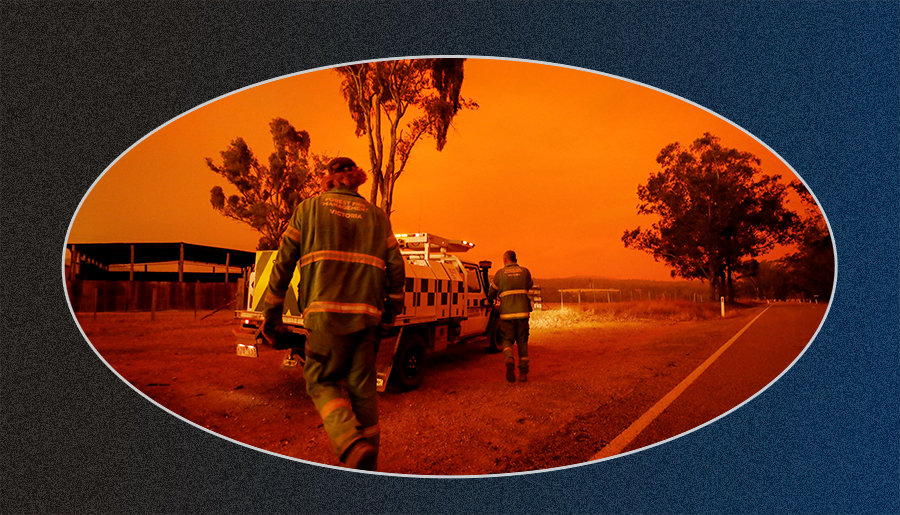Why Bushfires Might Be Bad News For Our Ozone
Climate change: The curse that keeps on cursing. A new scientific study has stated that bushfires might be able to shrink our ozone layers. What’s more, some scientists have realised this news by analysing what happened to Antarctica’s ozone hole after Australia’s 2019 and 2020 bushfires.
As these scientists stated, “Our results indicate that wildfire aerosol chemistry, although not accounting for the record duration of the 2020 Antarctic ozone hole, does yield an increase in its area and a 3% to 5% depletion of southern mid-latitude total column ozone. These findings increase concern that more frequent and intense wildfires could delay ozone recovery in a warming world.”
If you’re curious, these scientists believe that tiny smoke particles can attach themselves to chlorinated chemical compounds. These smoke particles then go upwards, until they hit the Earth’s ozone. The chlorine on these smoke particles is then able to eat away at this layer. Joy.
If we want our ozone to survive, less bushfires, better news, and a liveable planet, we need radical action on climate change. We need our government to ban any more coal-fired power stations from being built in Australia. At the moment, the Greens are fighting for this future. Let’s just hope that they can get it over the line.
Centrelink Payments Have Only Increased By 3.7%
If you’ve been living in an ivory hole for the past two years, Australia’s currently in a cost of living crisis. Rent’s too pricey, food’s too expensive, and paying for electricity is a massive struggle for some.
Additionally, this cost of living crisis is hurting Australia’s most vulnerable citizens. It sinks the folks who are already having a rough-as-guts time.
So, to help these people get by, routine indexation is bumping up some Centrelink payments. For instance, Jobseeker payments are going up by 3.7%. This means for Centrelinkers like Cliff Fraser, who spoke to the ABC. People like him will only receive an extra $1.77 a day.
$1.77 is obviously not a lot of money. It won’t be enough to save Cliff from Australia’s cost of living crisis. It’s not even enough to cover a carton of milk.
As Fraser said, “It is survival rates, and that is all.”
Related: Cost of Living Rebates — State-by-State Guide
Related: How Australians Fight the Cost of Living Crisis
Scientists Have Converted Our Air Into Electricity
In a bit of hopeful news, several Australian scientists have determined that an enzyme called Huc can do some buckwild shenanigans. And when I say buckwild, I mean Huc is able to transform hydrogen in the air into real electricity.
Dr Rhys Grinter, the lead author from Monash University’s Biomedicine Discovery Institute, is very excited about what Huc might do in the future. This is because Huc has the potential to charge someone’s FitBit or a smartphone.
“It can turn hydrogen in the air into an electrical current that we can measure and that can power a small electrical circuit,” said Grinter.
“We have only done this in a lab setting so far, but we’re confident that once it’s scaled up, it will be able to power a range of devices.”
Read more stories from The Latch and subscribe to our email newsletter.







